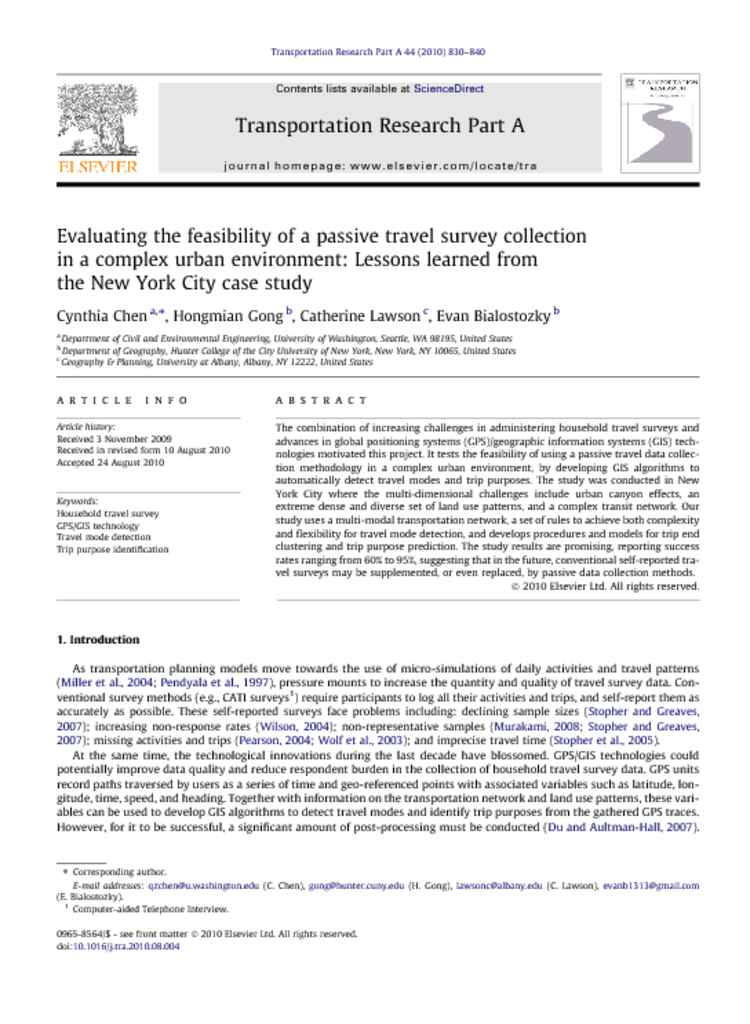The combination of increasing challenges in administering household travel surveys and advances in global positioning systems (GPS)/geographic information systems (GIS) technologies motivated this project. It tests the feasibility of using a passive travel data collection methodology in a complex urban environment, by developing GIS algorithms to automatically detect travel modes and trip purposes. The study was conducted in New York City where the multi-dimensional challenges include urban canyon effects, an extreme dense and diverse set of land use patterns, and a complex transit network. Our study uses a multi-modal transportation network, a set of rules to achieve both complexity and flexibility for travel mode detection, and develops procedures and models for trip end clustering and trip purpose prediction. The study results are promising, reporting success rates ranging from 60% to 95%, suggesting that in the future, conventional self-reported travel surveys may be supplemented, or even replaced, by passive data collection methods




